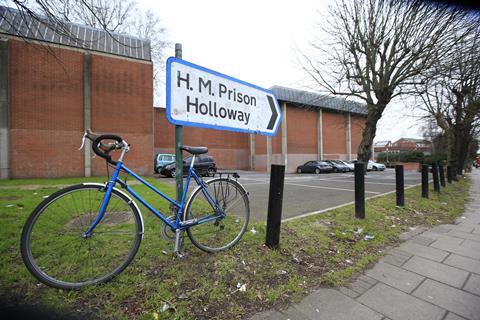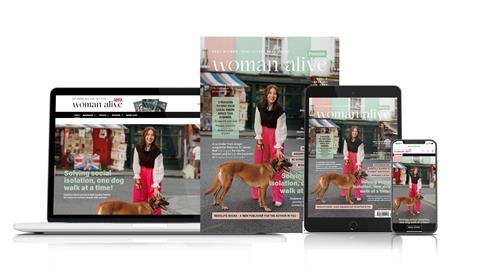Rev Tracy Sickel saw that the number of women in the Criminal Justice System has been increasing at a faster rate than the male prison population, so she started a charity to meet the spiritual and emotional needs of those women.

We have been hearing a lot in the news at the moment regarding the state of our prisons and the Criminal Justice System, insufficient beds, over-populated, not enough places, or staff, high reoffence rates, early release dates – what is it really like?
The number of women in the Criminal Justice System has been increasing at a faster rate than the male prison population. This trend is attributed to several factors, including changes in sentencing policies and women being given short sentences.
Women are more likely to be imprisoned for non-violent crimes, particularly drug offences and property crimes. These crimes are often linked to underlying issues such as substance abuse, mental health problems, and economic hardship. Women in prison often have histories of trauma, including physical, emotional, and sexual abuse. There is usually always a set of difficult circumstances that lead to a woman being imprisoned. Prisons are places of separation, pain, and plenty of time to reflect.
Unlike their male counterparts, women often bear the primary responsibility for their children
Unlike their male counterparts, women often bear the primary responsibility for their children, leading to profound and far-reaching effects on family dynamics and child welfare. Women risk losing their parental rights, especially if they are unable to maintain regular contact with their children whilst in custody and then struggle to get them back upon release.
Our UK prisons are currently full to capacity, and the provision within them overstretched in so many ways. The harsh prison environment, reduced numbers of prison staff and lack of resources fully exacerbates these conditions, with limited access to appropriate healthcare, rehabilitative services, and good consistent support services.
This leads to a lot of anxiety, despair and hopelessness within the prisons around financial instability, poverty, housing insecurity for their children and dependents, as well as low levels of confidence, self-esteem, and self-worth. At times, morale can be exceptionally low. Depression, severe anxiety, self-harm, and thoughts of suicide often prevail. For others it can become ‘Home,’ a place of community, survival, acceptance, an option easier than surviving on ‘the out.’
I was challenged to help make a difference by addressing trauma and grief and a whole lot more, as well as encouraging women in the Christian faith and sharing about Jesus.
I became a Free Church Prison Chaplain back in 2010. After five years of seeing women become regulars, returning back to prison, having the privilege of hearing their stories, I was challenged to help make a difference by addressing trauma and grief and a whole lot more, as well as encouraging women in the Christian faith and sharing about Jesus. I felt passionate about meeting women of all faiths and none at their point of need, in their distress, mess, and hopelessness and supporting them in their healing process, mindset change and helping them to improve their circumstances, and self-belief. In 2016 I founded a charitable organisation, Imago Dei.
Imago Dei now has four different projects working with women in the Criminal Justice System. ID Prison Ministry works within three prisons in the Southeast, delivering various courses addressing some of the contributing reasons for criminal activity and criminal involvement. These courses run for all ages and all faiths every week.
Our ID Essence project delivers a range of courses to 18–25-year-olds, looking at more age-specific topics. Our courses are delivered and facilitated by Imago Dei staff and volunteers offering pastoral care, support and mentoring to attendees. We work through the prison chaplaincy department alongside other Offender Management teams and aim to share the love, acceptance, and validation of Jesus where we can. In addition to these courses, we resource chaplaincy teams with worship nights, Bible Study, ALPHA and pastoral support and prayer.
Read more on ministry
‘I’ve forgiven the men who murdered our son and now spend time visiting others in prisons’
Help for those struggling with addiction
The church is in a unique position to offer those experiencing homelessness a family and community
We are also able to mentor women upon release, ‘Through the Gate’ back into the community where they need a different level of support, navigating society, probation, and other services, as they look for employment and accommodation to resettle well.
Employment and accommodation are two fundamental needs that are sadly hugely lacking upon release, two of the most vital necessities to living a life free of crime. As an organisation we hope to open ID Grace House which will provide accommodation and life-skills for women in the Kent area later this year.
Our #SheMatters project offers work-experience in our Kent charity shop to women on day release from open prison, helping them with transferable skills and building confidence. It is Imago Dei’s presence on the High Street raising awareness and helping the public get a better understanding of women in the criminal justice system.
Imago Dei’s aim is to bring hope and support, to help women to see that there is life beyond prison and that they do not need to be defined by their past but can live in their God-given potential and freedom.

































No comments yet